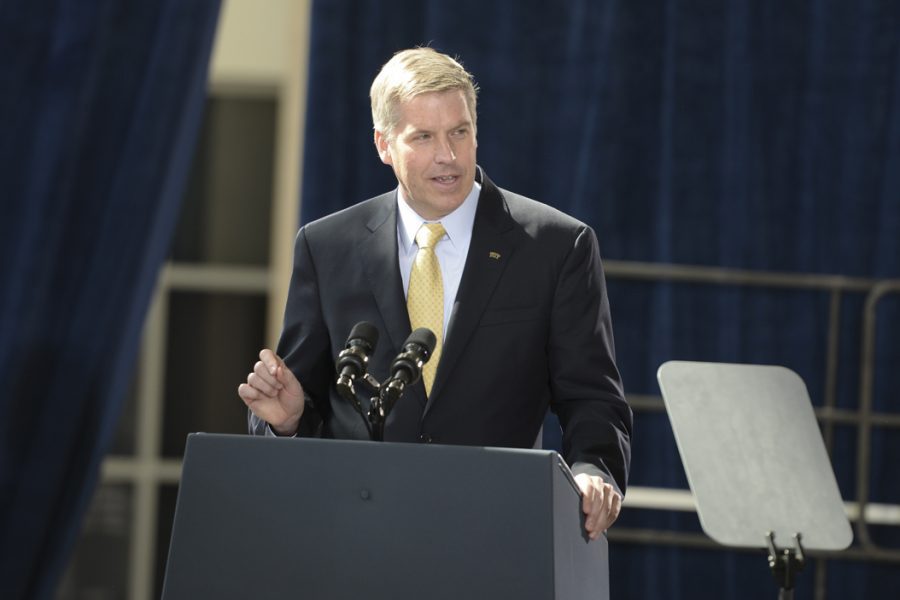As President Donald Trump’s executive order banning entry to the United States sunk in over the weekend, some groups responded with more defiance than others.
Riots and rallies across the country and in Pittsburgh manifested widespread disapproval of the order. Private companies including Starbucks, Lyft and Airbnb, pledged their support for refugees in the country. Locally, the board of Pittsburgh Public Schools made a unanimous decision Friday to make the city school district a “sanctuary campus” for undocumented students.
On campus, Chancellor Patrick Gallagher released a statement the day after the president signed the order, condemning the move as “deeply troubling” in its “potential to significantly impact our University community.” The words, while comforting and well-intentioned, fell short of promising what the city’s public school board had promised its students: real protection.
The sanctuary campus movement, an outgrowth of the trend of so-called “sanctuary cities,” first gained prominence in the aftermath of last year’s presidential election. Both movements strive to grant protections to their undocumented students or residents, primarily by refusing to voluntarily cooperate with federal immigration officials seeking to make arrests for deportation.
A 2015 study from Pew Research Center estimated that between 200,000 and 225,000 undergraduate students in the United States were living here without full documentation. And given the political and legal atmosphere of the new federal administration, now more than ever is the time to energetically commit to protecting these students’ fundamental rights.
Pitt’s faculty and student body made their will to protect undocumented students evident last November. A crowd of roughly 55 people delivered a letter to the chancellor’s office asking that University administration implement policies to ensure that there would be no collaboration with federal officials to target these and other vulnerable students.
The letter was followed in December by a petition from Pitt faculty members that specifically requested a list of policies — including promises not to allow Immigration and Customs Enforcement officials on campus — to stop any use of E-Verify in student and employee applications and to provide special assistance for students covered under the Deferred Action for Childhood Arrivals with visa status and financial aid. Assistant English professor Peter Campbell, one of the petition’s signatories, said the purpose of the requests were less to use the phrase “sanctuary campus” specifically than the University’s “willingness to work on behalf of all members of this community.”
The chancellor defended immigrant and refugee students on Pitt’s campus, offered a phone number for the Office of International Services at Pitt and some advice about traveling — but he didn’t mention what actions his own office might take to keep international students safe.
As of Jan. 30, the chancellor’s office has not made a public statement or response in regard to the petition. Susan Rogers, spokesperson for the chancellor, did not respond to questions in time for publication.
Without a doubt, the chancellor’s statement this past weekend was important and needed to be made. But without actually committing the University to sanctuary campus policies in order to protect the student body, his assurances will remain just words.


